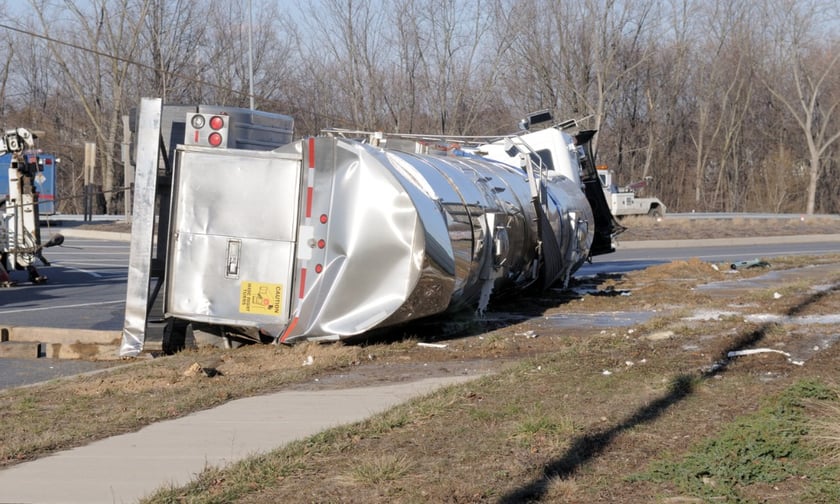

Training resources for dairy carriers and drivers are available as a result of a road safety initiative aimed at reducing dairy tanker rollovers. This follows research revealing dairy tankers were 2.4 times more likely to be involved in a major crash compared to other freight-carrying heavy vehicles.
The 2023 National Accident Research Centre (NTARC) report focused on dairy tankers. In studying data from 2019-2022, it found the main cause of single vehicle rollovers was speed. The NTI, a transport and logistics insurance specialist, led the initiative, which was partially funded through the National Heavy Vehicle Regulator’s (NHVR) Heavy Vehicle Safety Initiative, supported by the Australian government.
The resource pack includes a research report and videos alongside training modules.
Chris Hogarty, executive general manager for strategy and supply chain at NTI, said the training resource pack was completed in two years and with the help of key stakeholders in the Australian dairy supply chain. He said the sources can help drivers in having a better understanding of road safety while driving a dairy carrier.
“Dairy tanker rollovers not only endanger the lives of drivers but can also lead to negative environmental impacts that, because of the specific challenges of cleaning and contamination, can be more detrimental than oil spills,” said Hogarty.
“It was important for us to understand the unique conditions that make dairy tankers more susceptible to tipping, including varying load volume, unsealed roads, and tanker dynamics that are unlike any other vehicle.”
Hogarty said drivers should be mindful of speed, noting milk tankers are still prone to roll even at low speeds.
“Speed represented almost a third (32%) of all major incidents for dairy tank rollovers in that time, compared to 13% of regular freight. Our research showed, in a high proportion of major incidents (16%), dairy tanker drivers were ‘not at fault’. That’s compared to 12% of crashes involving other freight vehicles,” he said. “Our research and learning materials [have] the goal of improving safety across all levels of responsibility.”
NHVR CEO Sal Petroccitto OAM has welcomed the release of NTI’s training sources, noting the initiative is helping to fill a safety gap in the transport and logistics sector.
“Funded through our HVSI program, this innovative safety initiative is ultimately helping to reduce road trauma and save lives,” said Petroccitto. “At the NHVR, we place a strong focus on education, and I’m pleased to see NTI doing the same through their world-first training resources.”
Have thoughts about this story? Let us know in the comments below.
